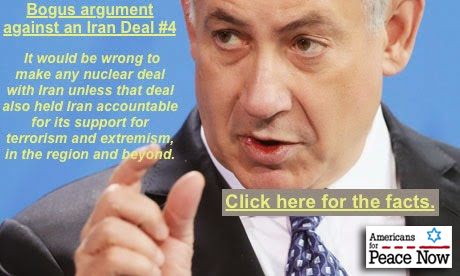 It would be wrong to make any nuclear deal with Iran unless that deal also held Iran
accountable for its support for terrorism and extremism, in the region and beyond.
It would be wrong to make any nuclear deal with Iran unless that deal also held Iran
accountable for its support for terrorism and extremism, in the region and beyond.
- Achieving and implementing an agreement acceptable both to the P5+1 and Iran will require that some sanctions imposed on Iran – sanctions imposed as a direct consequence of concerns about Iran’s nuclear program – be removed.
- However, an Iran nuclear deal would not change U.S. policy or impact U.S. sanctions with respect to Iran’s support for terrorism. U.S. anti-terrorism legislation is for the most part separate from Iran nuclear legislation; anti-terrorist provisions that apply to countries around the world would continue to apply equally to Iran, even with a nuclear deal in place.
- A nuclear deal with Iran could, potentially, open the door for improved U.S.-Iran relations – relations – which could eventually lead to improvements in other areas of concern to the U.S., including concerns linked to Iran’s support for terrorist organizations.
- Those seeking to derail Iran talks or scuttle a nuclear deal with demands related to other issues are sending a message that their true goal is not mitigating the threat of a nuclear-armed Iran, but regime change in Iran. Such a message will likely strengthen hardliners, increasing the threat that Iran will indeed seek to acquire nuclear weapons and worsening Iranian behavior in the other spheres, including with respect to support for terrorism outside Iran’s borders.
Click here for our full report covering the 11 most common bogus arguments Israeli Prime Minister Netanyahu and other opponents of an Iran deal are making.